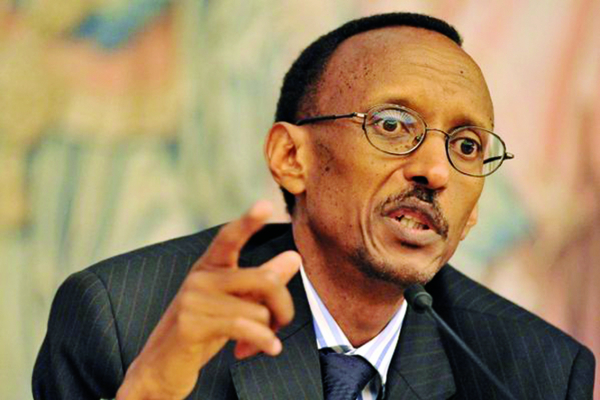
In Africa, our biggest threats are also opportunities.
By 2035, 450 million Africans will have joined the working age population, more than the rest of the world combined in that time.
Paul Kagame
They will power our economies forward, as long as there are jobs they have the knowledge to perform.
But our schools and universities have not kept pace with technology.
Over half of all jobseekers have few or no skills, while 41% have qualifications, but no skills for the jobs available.
The gap is wider still in science, technology, engineering and mathematics.
I was delighted to participate, along with other government officials and the private sector, in the second African Transformation Forum last week in Accra, Ghana, where restructuring our economies for the digital age was high on the agenda.
- Chamisa under fire over US$120K donation
- Mavhunga puts DeMbare into Chibuku quarterfinals
- Pension funds bet on Cabora Bassa oilfields
- Councils defy govt fire tender directive
Keep Reading
The forum took place at a time when conditions for the continent’s transformation agenda have never been better.
We are experiencing greatly accelerated progress towards the economic unification of our continent.
In this year alone, the African Union has adopted the free movement protocol and inaugurated a single African air transport market, which will reduce not only ticket prices, but also the need for stopovers on other continents.
Most importantly, in March, 44 countries signed the Continental Free Trade Area agreement.
Most other member states indicated their intention to follow suit in due course.
Joining up diffuse, fragmented markets would be a leap forward. Doing this across borders will require governments to work closely with each other, and with the private sector.
By creating a highly networked, frictionless marketplace, we will encourage the best products, services and ideas to rise to the top.
This will boost the economy as a whole and open up opportunities for women, rural populations and other marginalised groups.
Ultimately, the goal is to make our economies bigger and more dynamic. No country or company will lose out in the long term.
This is why business leaders are called upon to be champions of continental integration, first of all by seizing these new opportunities to grow Africa’s firms.
Business leaders now participate actively and meaningfully in African Union summits.
This is based on the understanding that the shared prosperity at the core of the union’s Agenda 2063 can only happen when the public and private sectors are working closely together.
The business community should also contribute to holding governments accountable for putting what has been agreed into action, and pushing all of us to do more, and better.
For example, given the transportation and logistical challenges on our vast continent, much more investment in joint regional infrastructure, including digital networks, is required.
Globally, there is no shortage of finance, both public and private.
We can attract more of it to Africa, and help close the investment gap, by planning big infrastructure regionally.
This generates projects of sufficient size to interest major funds, and enhances the business case.
It also makes regional integration tangible and irreversible.
We also need to match external capital with African capital. African savings are not being mobilised effectively.
This can help reduce risk perceptions, and also ensure we share the upside of profitable deals.
Building the capacity of African firms creates badly needed jobs and skills right here on the continent and, as African construction and services firms grow, costs and operational risks will decrease.
The Continental Free Trade Area goes against the prevailing trend of moving away from regional integration and the multilateral trading system.
This is already making Africa stand out to global markets and investors.
Finally, prosperity rests on good politics and a secure environment, because the transformation agenda requires a broad consensus that is sustained across decades.
Transformation requires leadership and accountability at every level, beginning at the top, but not stopping there.
Paul Kagame is the President of Rwanda. This article first appeared in The Guardian newspaper











